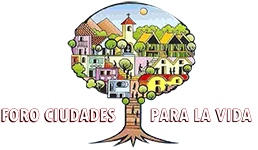Strategies of Intervention
1. Citizen participation and political incidence
Since 1996, over almost 20 years of operation, the Foro has promoted and implemented the environmental urban development process (LA21) in 15 cities in Peru with citizens’ participation.
It has also promoted the design and adoption of various laws and environmental standards. FORO has contributed, along with other networks and institutions, discussion etc., to the elaboration and the approval of several legislative proposals at national level related to sustainable development and local environmental management, which can be seen in the following table:
Table Nº 1: Contributions of Foro to National Legislation on Sustainable Development and Local Environmental Management
|
Type of Normative/Legal Instrument |
Name |
Actual situation |
| Law | Framework Law of Climate Change of Peru | Approved |
| Law | Descentralization Law | Approved / Existing, some articles |
| Law | Law of Municipalities (particularly skills and environmental functions) | Approved / Existing, some articles |
| Law | Act establishing the National Environmental Management System | Approved / Existing, Local Chapter |
| Law | Framework of the Participatory Budget Law | Approved / Existing, contribution to the whole text |
| Ruling | Regulation of the framework law of the participatory budget | Approved / Existing, contribution to the whole text |
|
Law |
Land use-General planning Law |
Draft law drawn up in discussion. Currently, participation in national agreement. |
|
Ruling |
Ruling of provincial Land-use Planning, Territorial conditioning and urban sustainable development management | Proposal for a regulation drawn up in discussion |
|
Law |
Absolute prohibition of the use of asbestos |
Partially approved (only anfibole) The ban of chrysotile is pending approval |
|
Supreme Decree |
Supreme Decree prohibiting the use of building materials containing asbestos (Ministry of housing and construction) | Approved by the Ministry of housing and construction. Developed completely by Cities for Life Forum |
|
Supreme Decree |
Supreme Decree to ban asbestos in all its varieties and regulation of asbestos removal processes | Developed completely by Cities for Life Forum. Pending approval by the Ministry of health. |
| Ruling | Construction Waste Ruling | Approved on the 8th of Feb 2013 |
In addition, at the local level, FORO has contributed to the development of several standards and instruments of environmental management in the municipalities.
2. Development of Capacities for Environmental Management
One of the main contributions of the Cities for Life Foro has been Capacity Development for Environmental Management.
FORO has helped to train more than 12,600 professionals nationwide, specializing them in environmental issues (Environmental Management, Sustainable Construction, Climate Change, Land Use Planning) through Master’s Degrees in Urban Environmental Management, a Decentralized Diploma and an online course about the RedAL21 (Local Agenda 21 Network) and other international and national post graduate courses have been taught in the recent years to public officials, representatives of NGOs and social leaders.
3. Management and Dissemination of Knowledge
One of the main concerns of FORO has been the need to generate learning experiences from the processes that have been promoted. To this end collective management of knowledge through case studies has been provided by the members themselves in a comparative way thus capitalizing on the experience and particular focus of each one.
Subsequently the diffusion of results of evaluations and the systematization of experiences (Case Studies (1) and Pilot Projects (2)) were emphasized. This has allowed many actors to get to know other experiences that enrich their own, facilitating access to information regarding new practices and innovative processes.
Furthermore, FORO has recently maintained an average rate of three annual publications (from manuals to books) which have served as a support for the specialization courses and developed training workshops. Part of the accumulated knowledge was spread through printed and electronic publications that have been placed on the institutional website to facilitate its dissemination and widespread use, which can be seen in annex 1.
This does not include the numerous studies, work documents and materials from expositions, which have been developed specifically for these specialized courses, training workshops and exhibitions that have been delivered to the participants for a better understanding of the issues addressed.
In conclusion, we promote activities which address the solution of critical urban environmental problems.
